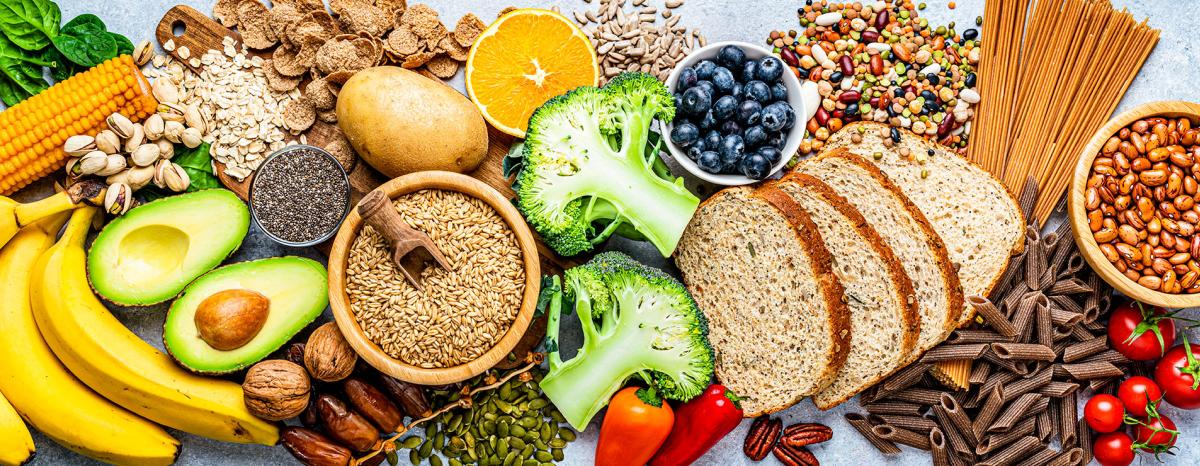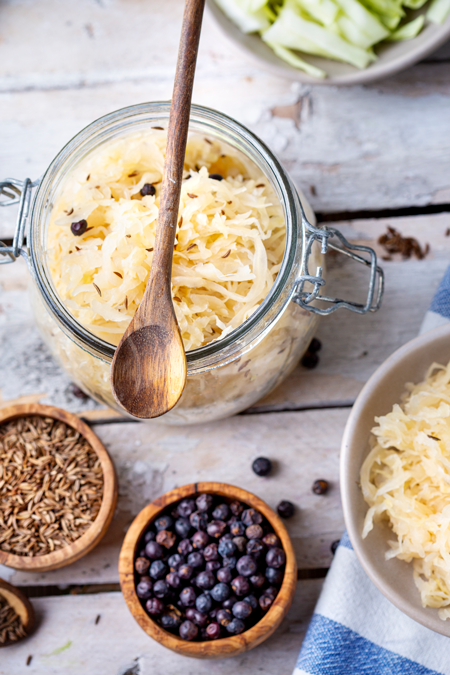
Gut health is garnering a lot of attention, as research continues to show its importance to overall health. Yet, the flood of information online about improving digestive health can make it hard to separate fact from fiction. Science is just starting to understand the importance of multiplying the good bacteria in our gut, which help with decreasing inflammation and improving our overall health. Our microbiome requires nurturing and depends on us to maintain a healthy lifestyle. The first step is eating a healthful diet with a variety of prebiotic and probiotic foods.
5 Ways to Improve Gut Health
When it comes to our guts, there’s a lot more going on than meets the eye. Our gut health is incredibly complex. It impacts things we expect: heartburn, indigestion and digestive issues like irritable bowel syndrome. But it also plays a role in some unexpected ways, affecting our cardiovascular system, immune system and even our cognitive health.

Our gut is full of tiny microbes that send signals throughout our body. This includes trillions of microorganisms, mainly bacteria, which can be beneficial and harmful. When our gut microbiome, as it’s called, gets out of balance, it can affect how we feel and function.
Unfortunately, most Americans know little about their gut health or how to improve it, according to a new Ipsos/MDVIP survey on gut health. Instead, they have learned to live with digestive issues, trying mindful eating and supplements to solve complex problems. One in five have tried multiple approaches to resolve their problems but now feel they’re at a dead end. While the science behind our gut is evolving, there are things you can do now to boost your microbiome. Here are five ways to keep your gut healthy.
Eat Probiotics and Prebiotics
Probiotic foods undergo a process called lactic acid fermentation – the live bacteria they contain, called lactobacillus, helps preserve them and imparts a tangy flavor.
These foods include certain types of sauerkraut, kimchi and pickled vegetables, as well as yogurt and kefir made with live and active cultures. Prebiotic foods contain soluble fiber favored by bacteria in your belly, including inulin, oligosaccharides, pectin, beta-glucans and resistant starch. You can find this kind of fiber in foods like oats, barley, onions, chicory root, asparagus and Jerusalem artichokes.
Get Exercise
Surprisingly, studies show exercise increases the number of beneficial microbes and helps keep your microbiome diverse. Moderate exercise may also reduce the permeability of your intestinal lining, keeping pathogens from crossing that barrier. Exercise also decreases inflammation, which further helps the microorganisms which are helping you.
Reduce Your Stress
Stress is hard on a lot of our bodies’ systems, including the gut. You’ve probably experienced flutterings in your belly when you’re anxious or stressed. But stress doesn’t just make us feel funny, it can reshape the composition of our gut biome. Too much stress can throw off the delicate balance of bacteria in our guts and cause inflammation.
Get Plenty of Sleep
When we miss sleep, our bodies release hormones that affect our mood and stress levels. These hormones negatively influence the diversity of our gut bacteria, which in turn affects immunity and cognition.
Stay Hydrated and Limit Alcohol
Drinking water is associated with gut microbiome diversity — it seems to encourage growth of good bacteria and discourage bacteria that are harmful. Meanwhile, too much alcohol can disrupt your gut microbiome, causing inflammation and weakening the lining of your intestines.

Probiotic foods like raw sauerkraut and kimchi along with yogurt with live cultures can help keep the bacteria in our bellies balanced and healthy.

